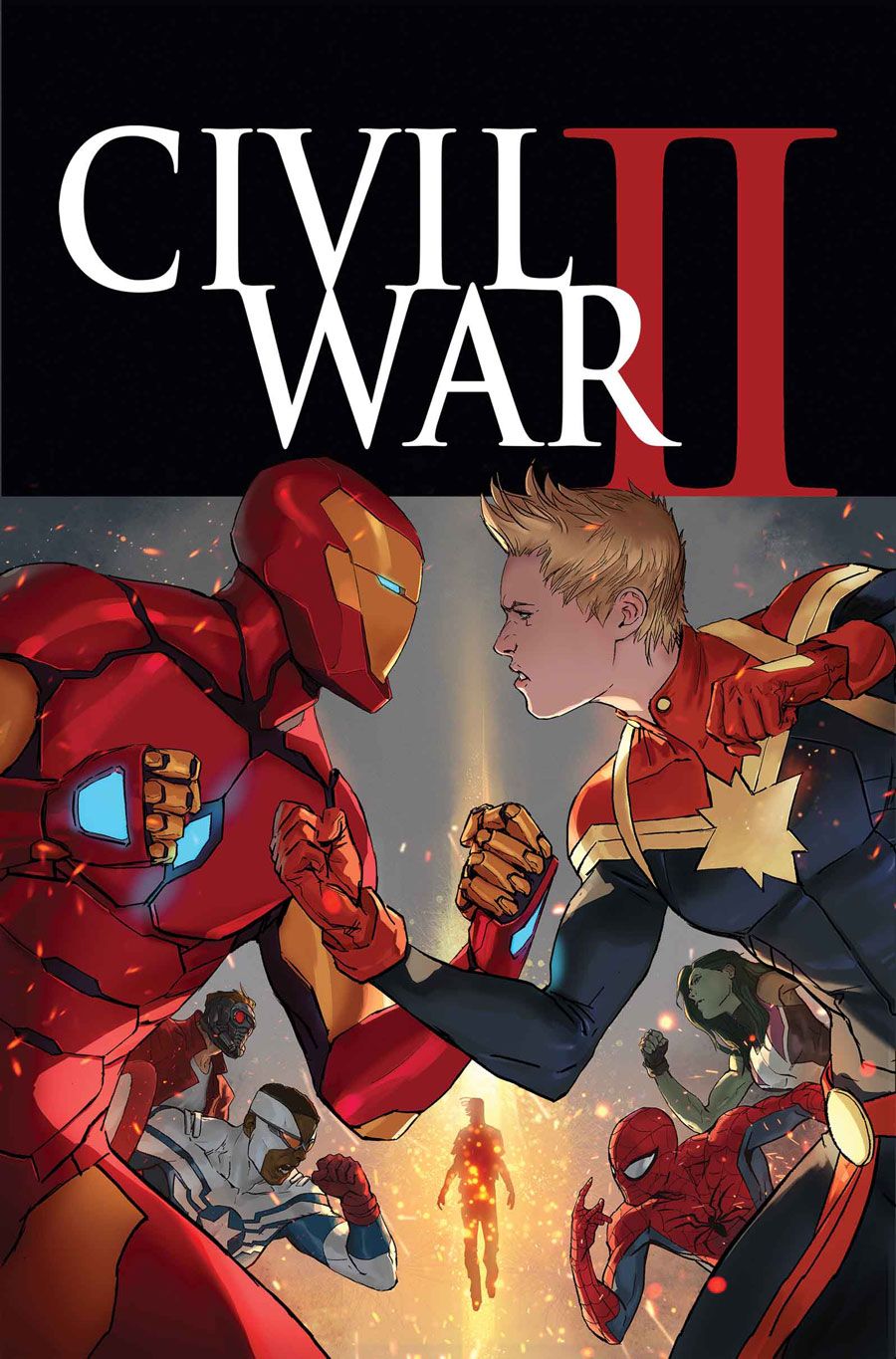With "Captain America: Civil War" rampaging its way across the box office, a "Civil War II" miniseries from Marvel Comics was inevitable. However, it's much to Brian Michael Bendis and David Marquez's credit that they don't simply ape the original "Civil War" miniseries that inspired the plot of the film; instead, they just use the basic idea of hero-against-hero as a springboard. This initial chapter is off to a very strong start, though it's a little unclear how much staying power the overall concept has.
Tom Brevoort Talks "Civil War II," the New Marvel NOW! and DC's "Rebirth"
Bendis provides a very simple setup: a new Inhuman named Ulysses has ability to get glimpses into the future, and his visions are preventable, as seen in the early pages of "Civil War II" #1 when the assembled heroes of the Marvel Universe are able to knock a massive cosmic threat out of this universe. Given the opportunity to collaborate with Ulysses to try and stop future threats before they occur, Iron Man and Captain Marvel quickly find themselves on opposing sides -- and when a hero dies as a direct result of Ulysses's visions, the line in the sand is officially drawn for another big conflict in the Marvel Universe.
Characters who can see the future are no stranger to superhero books, let alone the Marvel Universe. Bendis wisely recognizes this and subsequently gives added weight to the arguments for and against using these visions; Ulysses' second mission results in not only an incredibly powerful villain being stopped, but also the death of one longtime hero and former Avenger as well as the near-death of a second one at the end of the issue. It's a smart move, in that the deaths of close friends are enough to make heroes on both sides dig in their heels and push harder for what they think is the right answer. Bendis is also smart enough to use two similar teams with slightly different tactics here: the Avengers being a defensive force, while the Ultimates are an offensive force. In the end, it takes an idea we've seen a great deal of in comics and gives it a little extra weight needed to carry this first issue.
On the whole, Marquez's art works well here. He and colorist Justin Ponsor make the cosmic threat at the start of the issue look truly imposing, even as it's hard to make out its details; its vague shape and fiery hue are eye-catching. It's also a good contrast to the crisp lines we generally see for the heroes throughout "Civil War II" #1; he's able to make people's faces look as well-defined as the technological rendering of Sam Wilson's wings or the outside of New Attilan. Marquez is at his best when it comes to the close-ups on his characters, though; whenever Ulysses has a vision and we zoom in on his red eyes, it's jolting even though we see so little of the character. That's a nice touch. Similarly, the look on Tony's face when he hears about the first hero death is so startled and lost, it brings home Bendis' script quite well.
Marvel Announces "Civil War II" Prequel Starring Inhuman Ulysses
"Civil War II" #1 is by no means a homerun, though. Positioning the Inhumans at the center of the comic is somewhat unsurprising, as Marvel continues to try and make this group of characters important in readers' minds, but they don't come across as that interesting a race even with one of their own at the center of this miniseries. It's also a little unclear how much this core idea can fuel a seven-part story. Presumably, there's still a lot of additional plot elements on deck, because -- despite Bendis' use of the tired "Hitler as a baby" ethical dilemma -- this doesn't feel like a conflict that can hold interest for the better part of a year, at least not in the same way superhero registration managed to in the original "Civil War." Likewise, while I like Marquez's art overall, he hasn't mastered the art of drawing dozens of characters into the same scene. What looks beautiful and well-rendered when it's just a few characters looks a little too loose and scratchy as the numbers grow.
Overall, "Civil War II" #1 is a good launching point for this miniseries, even as it integrates the information from "Civil War II" #0 and the Free Comic Book Day special. I'm curious to see if Bendis and Marquez can maintain this level of tension and what they'll add into the mix to keep the conflict burning strong. For now, though, it's more than enough to get readers coming back for more. It's a good lynchpin for Marvel's publishing line over the next few months; they've got another bestseller on their hands here.

